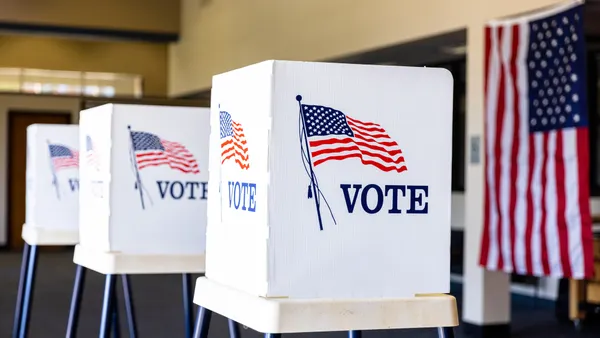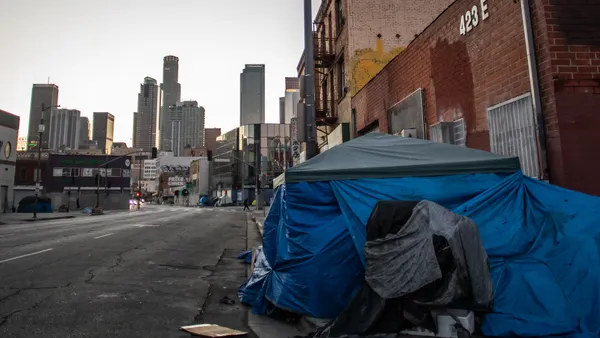Editor's note: This article was originally published in American City & County, which has merged with Smart Cities Dive to bring you expanded coverage of city innovation and local government. For the latest in smart city news, explore Smart Cities Dive or sign up for our newsletter.
As the 93rd annual meeting of the U.S. Conference of Mayors kicked off Thursday, June 19, attending mayors were focused on the local challenges brought about by the federal government. National Guard troops and U.S. Marines are on the ground in Los Angeles, despite the opposition of its mayor. The Trump administration is continuing its pressure on cities to cooperate with widespread immigration enforcement by threatening to withhold federal funding, including that for security. And as hurricane season gets underway, the administration has discussed shutting down the Federal Emergency Management Agency, a lifeline for communities effected by devastating natural disasters.
Speakers at an initial press conference to launch the conference spoke on the value of meetings such as this. Host city Mayor Jane Castor welcomed attendees to Tampa, excited to share her community with fellow mayors and discuss “the issues that concern cities, small and large, across our country,” she said. “There is a lot of hard work that is going to go on at this particular conference. We share ideas, we share approaches, things that have worked in our community and things that haven't worked. And mayors are able to take those ideas back to their cities to be able to better serve their communities.”
USCM President and mayor of Columbus, Ohio, Andrew Ginther stressed the importance of mayors. “In times of progress and in times of trial, you can count on America's mayors — Republicans, Democrats and independents — to put politics aside as we come together to learn from one another, to collaborate on behalf of our people and our cities, to find solutions to the most challenging problems facing our country,” he said.
Cities are engines of U.S. economic growth, Ginther said. He previewed a report on metro area economies the USCM would be releasing this week that shows “cities account for 90.8% of the nation’s GDP, 89.5% of commercial income, 92.1% of wages and salaries and 88.2% of employment. The bottom line is, when America’s cities succeed, America succeeds,” he said.
Other issues the USCM is focused on include the housing shortage. Ginther said they will be forging ahead with a push for federal housing legislation once the federal budget process is complete. He also praised meetings USCM representatives had with their Canadian counterparts about the impact of tariffs on communities on both sides of the border.
In discussing the recent immigration crackdowns and U.S. Immigration and Customs Enforcement (ICE) raids in major cities, namely Los Angeles, Ginther previewed a resolution the USCM will vote on later in the conference regarding the Trump administration’s crackdown on immigrants and its use of National Guard and active-duty military troops without the request or approval of state and local officials.
“This resolution [is] … a reaffirmation of the principles of local control, public safety and way of living that define our cities. It is a critical step towards ensuring that federal actions respect our communities, prioritize genuine threats and uphold the fundamental rights or residents,” he said.
In response to President Trump’s announcement that he plans to phase out FEMA, Ginther said this week the USCM will establish a new task force on intergovernmental emergency management, led by Tampa’s Castor. “This task force will work to elevate local voices in federal policy, strengthen federal local coordination and champion increased federal investment in pre-disaster mitigation efforts,” Ginther said.
“America's mayors remain focused on what truly matters,” Ginther said — “making progress for our cities, improving the lives of our residents. … So, as we come together this week, mayors will, once again, put aside politics, roll up our sleeves and work hard to find ways to collaborate across city lines and state lines, and even reach out to our federal partners. … The common good of our constituents demands it.”
The annual meeting runs through Sunday, June 22.












